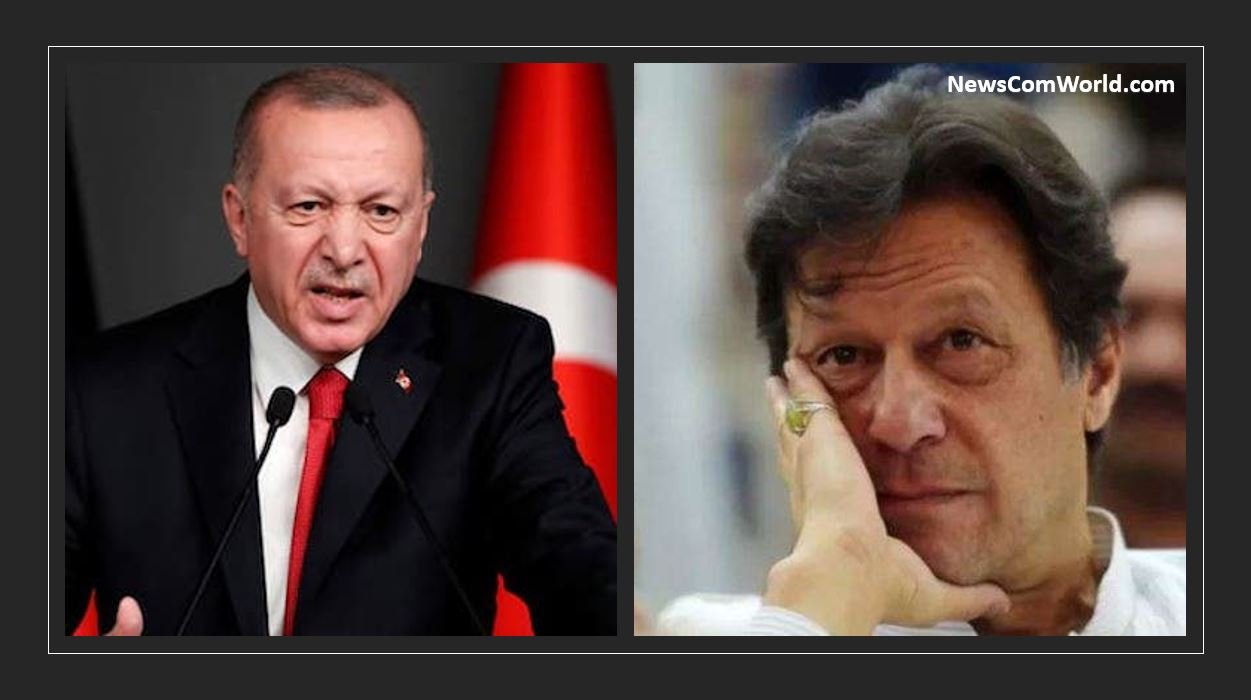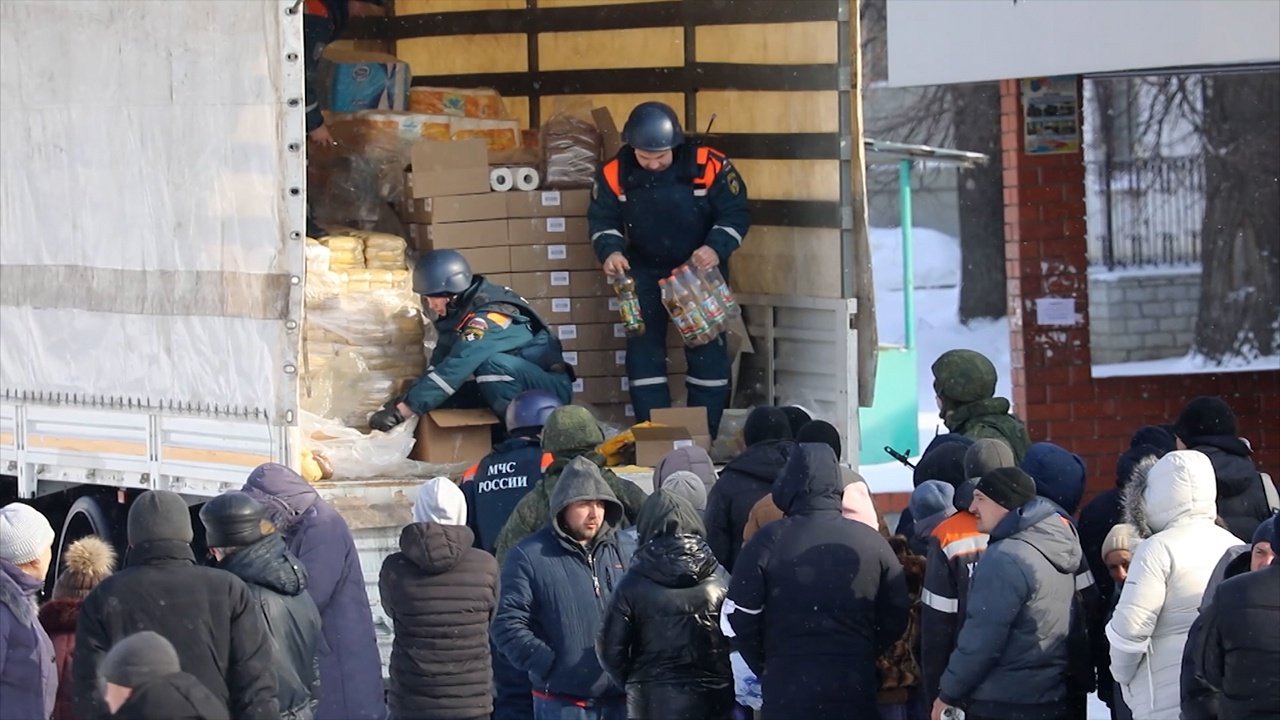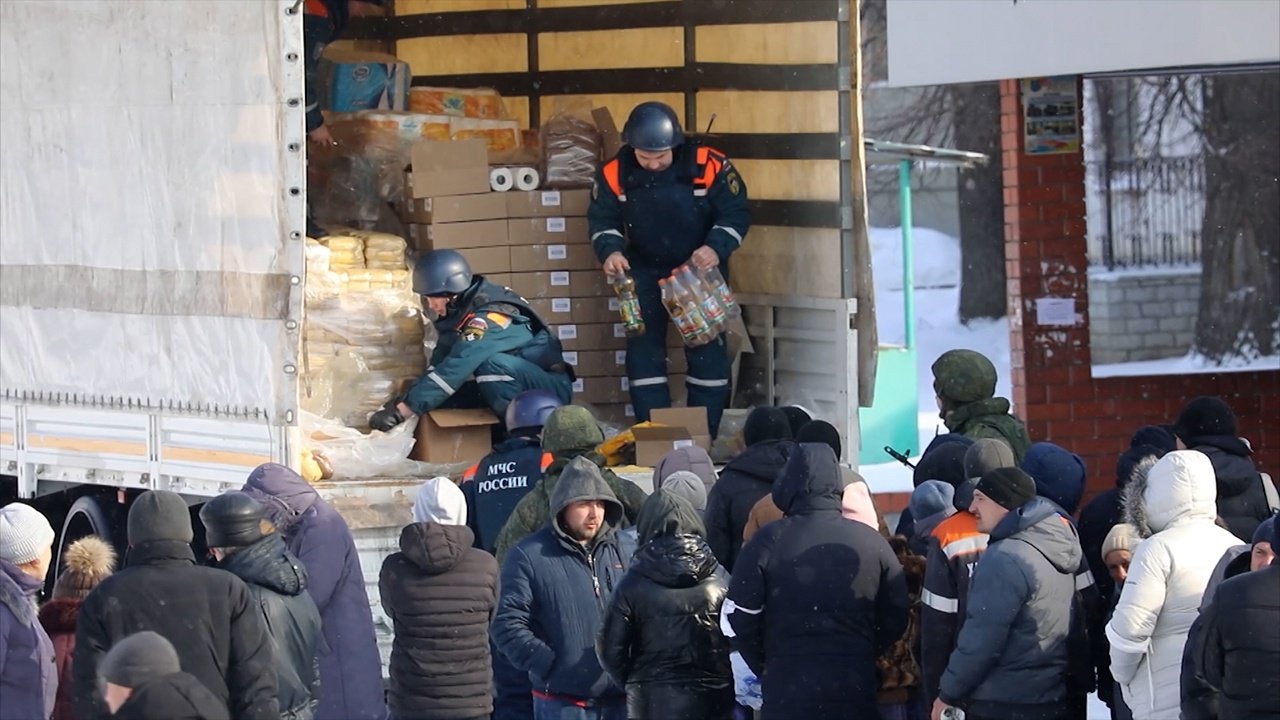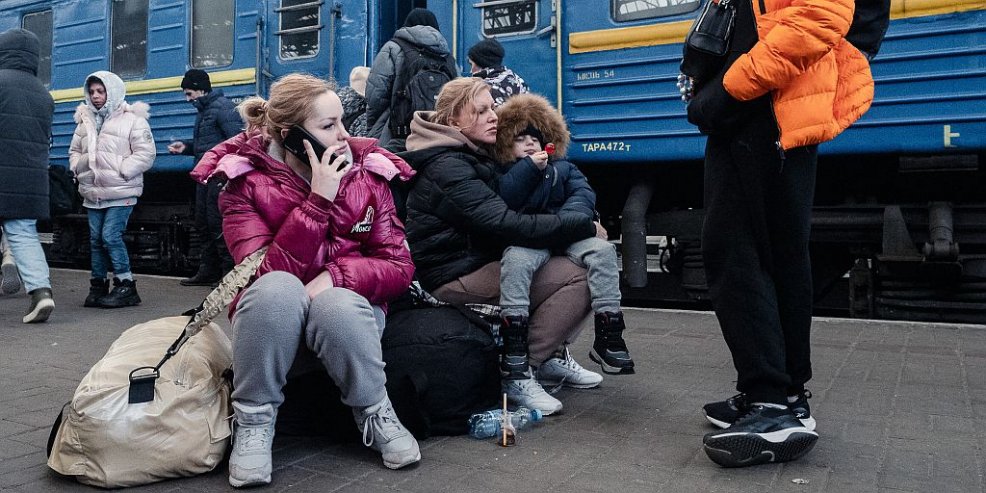Erdogan Asks Pakistan Army’s Taliban Units to End Occupation of Afghanistan. Why is Turkey Interested in Afghanistan? Will Pakistan Let Turkey Spoil its Future Plans?
Turkish President Tayyip Erdogan said on Monday that the Taliban should “end the occupation of their brothers’ soil”, and played down a warning from the militant group of consequences if Turkish troops remain in Afghanistan to run Kabul airport.
The Taliban ruled Afghanistan with an iron fist from 1996 to 2001 and have fought for 20 years to topple the Western-backed government in Kabul and reimpose Islamic rule. They are making a fresh push now to gain territory as foreign forces pull out.
“(The Taliban) need to end the occupation of their brothers’ soil and show the world that peace is prevailing in Afghanistan right away,” Erdogan told reporters before leaving for a trip to northern Cyprus.
Recent Statement coming from Turkish President Tayyip Erdogan has complicated the position of terror producing country Pakistan that had sent its Pakistan Army’s Taliban units to Afghanistan following Pakistan’s wet dream of a forced takeover of Afghanistan. But the statement of Erdogan asking Pakistan sponsored Taliban Terrorists has put Pakistan in a complicated situation.
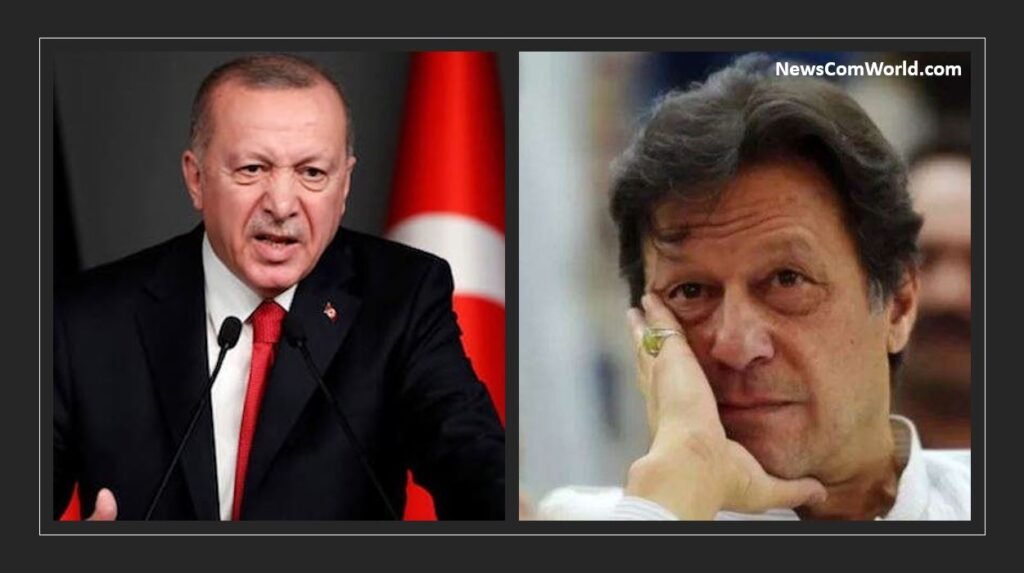
Will Pakistan submit to its adopted fatherland Turkey and end its illegal occupation of Afghanistan using its Taliban units and mark it an end of its wet dream? or Will Pakistan continue with its wet dream to continue with forced takeover of Afghanistan for which Pakistan Army and Pakistan Intelligence Agency ISI had prepared extensive plans and spent Billions of Tax-Payer’s money in arming its Taliban units? Question also needs to be asked why is Turkey against the Pakistan Army’s Taliban unit’s forced takeover of Afghanistan and want a democratically elected government in Afghanistan supported by West to continue?
Related Article Bad News For Pakistan: Cost of Pakistan Army’s Taliban Units Misadventure in Afghanistan Rises to Prohibitive Figures.
Turkey’s Ambitions for Afghanistan
Turkey plans to have its troops safeguard Kabul airport in the Afghan capital after the United States and other coalition countries withdraw troops from the country by September. A continued Turkish military presence in Kabul is seen as essential for maintaining access to the country and keeping embassies in the Afghan capital open.
Turkey is not hiding its enthusiasm for maintaining a presence in Afghanistan to protect Kabul Airport.
Analysts think the Turkish willingness to take on the role reflects its desire to use the departure of US and Western forces as a springboard to achieve Ankara’s strategic ambitions in Central Asia. It hopes to expand its influence through a military, economic and cultural presence that tries to revive the common historical roots that bind it to some of the peoples of the region.
Some analysts say that Ankara is tempted to play a larger role on the ground after the departure of the Western forces from the region but has not fully thought out the consequences, especially since it will be undertaking a defensive mission at Kabul Airport.
Why is Turkey offering to protect Kabul’s airport? It is a risk worth taking for Erdogan. As difficult as it may be to swallow, there is an acceptance in Ankara that Turkey has no other option but to ease tensions with the US, the EU, and even Egypt and Israel. The administration of Joe Biden might not have a clear strategy on handling the Turkish portfolio, but the cool start in relations with the newly installed US administration and a return to US–Turkish engagement though traditional diplomatic channels – rather than one-to-one dealings between the presidents of the two countries, as was the norm under Donald Trump’s administration – have already been a wake-up call for Ankara.
In essence, Turkish officials know that the country’s diplomatic capital has been exhausted, and that it needs to find a way to keep its position as a strategic partner, which has thus far been taken for granted. Thus, it is no surprise that Erdogan went to the NATO summit last month with an offer to step into a crucial role in Kabul; nor is it a surprise that this has been accepted and appreciated for what it is as a tangible positive contribution.
The current trade volume between the two countries is – unsurprisingly – low, amounting to less than $200 million a year. Turkish companies have delivered contracts in Afghanistan, and might deliver more, particularly if international aid and relief continue. Perhaps it is the importance of the geostrategic webs criss-crossing Afghanistan that has led Ankara to conclude it should remain involved in the country, while seeking to exploit any potential opportunities to engage with regional stakeholders such as Pakistan, Iran, Russia and China. It is not surprising, therefore, that the Turkish Defence Minister Hulusi Akar has referred to Afghanistan as the ‘the heart of Asia’.
This strategic outlook fits with Ankara’s reading of regional and global developments. Erdogan’s administration increasingly believes that unless Turkey takes the offensive abroad and anchors its diplomacy in demonstrating hard power where necessary, it will not stand a chance in negotiations with regional and global powers when it comes to issues that are directly important to Turkey’s own security and national and economic interests.
It is therefore likely that its first goal is to position itself as a pivotal player on the Afghan scene, especially one that it is close geographically to the region and aims to succeed where Western powers have failed.
Turkish government officials said that Defense Minister Hulusi Akar and US Pentagon chief Lloyd Austin held a “constructive and positive meeting” Wednesday 7-July 2021, to discuss a plan developed by Turkey to manage and guard Kabul airport after the complete withdrawal of NATO forces from Afghanistan.
The talks focused on the financial, political and logistical support. Securing the airport is essential to the movement of diplomatic missions in and out of Afghanistan after NATO’s withdrawal.
The Pentagon said that Austin and Akar discussed the withdrawal of US forces from Afghanistan and “reaffirmed the importance of providing adequate security” at the airport. It added that they agreed to speak again in the near future.
Observers believe that Ankara knows very well that it will not be militarily any more capable than the United States or the Soviet Union, which, after years of war, were forced to withdraw from Afghanistan. They expect Ankara’s strategy will not rely solely on military muscle.
To secure its presence at Kabul airport Ankara is expected to use relations with countries such as Pakistan and Qatar which have strong connections inside Afghanistan, in order to maintain solid channels to the Taliban and bring them into the trilateral alliance Ankara is trying to build there.
Andrei Isef, an expert in Turkish affairs, asserted in Modern Diplomacy that the Turkish president’s ambitions would not be limited to just securing the airport.
Turkey sees Central Asia as a focal point for its attention and has diversified its activities and meetings in the region. Its most recent step was the “Islamabad Declaration” signed by the foreign minister of Turkey, Mevlüt Çavuşoğlu, his Pakistani counterpart Shah Mahmood Qureshi and Azerbaijan’s chief diplomat Jehon Bermov last January in the Pakistani capital.
The tripartite declaration included deepening cooperation in defense and security, joint exercises, capacity building and the exchange of new technologies.
Relations of trust between Erdogan and Pakistani Prime Minister Imran Khan pave the way for military and political cooperation in Afghanistan, especially since Ankara wants Islamabad to play an active role alongside Turkey in the mission of guarding Kabul Airport. However Erdogan has overlooked the fact that Pakistan does not want to limit itself to guarding a mere airport in Afghanistan rather it is Pakistan Army’s Taliban units that are currently engaged in forced takeover of the entire Afghanistan. When Pakistan can dream of taking over entire Afghanistan by force and install a puppet Taliban government, why would it contend itself with guarding a mere Airport alongside Turkey?
Related Article War Between Afghan Security Forces And Pakistan Army’s Taliban Units enters Critical Phase – Women Are Coming On Streets To Defend Their Freedom
Including the Taliban in this alliance, in the light of the militant group’s strong ties with Pakistan, is possible. It may even help in promoting negotiations between the Taliban and current Afghan president, Ashraf Ghani, in order to produce a government controlled by the Islamist movement, provided that the West is convinced, even if only nominally, that such an arrangement could finally bring peace to the country that has been mired in war for decades.
Qatar can exert pressure on the Taliban movement to accept this formula, taking advantage of the historical relations between the two sides, especially by employing the financial card as Taliban’s needs for economic support will be significant if they take over Afghanistan.
Turkey also wields an important card in Afghanistan, consisting of Turkic tribes (northern and central regions) that still speak the Turkish language and have a strong influence. These include the Uzbeks and Turkmen, who are often referred to as “outside Turks”, while the region in which they live is known as “Southern Turkistan”. If Turkey is able to establish foothold in Afghanistan and station its forces in Afghanistan, it can infiltrate its mercenary/terrorist forces into China to help Uyghur Muslims so that Turkey can truly portray itself as the leader of Muslim Ummah. Further the presence of NATO member Turkey in Afghanistan can be used as a springboard to extend NATO influence in Central Asia especially former USSR breakaway republics. In order to spread its influence to as far as Xinjiang in China, the first step is to let Taliban end their occupation of Afghanistan and let Democratically elected government supported by West and NATO that will provide endless supply of US Dollars and Euros to Turkey.
Related Article Failed attempt by Turkey to become Leader of Muslim Ummah
Turkey plays on the ethnic dimension, benefiting from the geographic expansion of Turkic tribes throughout history. It is working to revive this historical common bond by presenting it in a positive light through the production of historical TV series.
If the Turks succeed in imposing their security and political presence over Kabul airport, this will open the way for them to play a greater role in Afghanistan and the region. It also opens other avenues for Turkish economic and security influence.
But the task is likely to run into Iranian influence in the country and Tehran’s willingness to compete in filling the vacuum that the Westerners will leave after their withdrawal. Iran has had already a successful experience doing exactly that in post-US Iraq.”
Pakistan’s Ambitions of Forced Takeover of Afghanistan in Contrast with Turkey’s Ambitions in Afghanistan
Pakistan controlled Taliban has warned Turkey against extending its troop presence in Afghanistan when US-led forces leave, insisting the decision is “reprehensible”.
Pakistan does not want Turkey to enter into Afghanistan battlefield. When the nuclear powered Pakistan itself aspires to takeover entire Afghanistan, why would Pakistan need its fatherland Turkey to come and takeover the entire pie and through out Pakistan from the equation?
Similarly Russia also does not want Turkey to enter Afghanistan. Russia does not want NATO ally Turkey that wants to get into the good books of NATO anywhere near its allies in Central Asia.
Turkey’s decision to maintain a limited military presence in Afghanistan with support from the United States was made without consulting either the Afghan government or the Taliban, Zamir Kabulov, Russia’s special envoy for Afghanistan, said on Wednesday 14-July 2021.
To maintain a Turkish military mission in Afghanistan after the U.S withdrawal in September directly contradicts the February 2020 agreement signed in Qatar between Washington and the Taliban, Kabulov told Turkish state-run Anadolu Agency (AA) in an interview. He added that the deal was seen as particularly negative by Taliban officials during a recent visit to Moscow where they held discussions with Russian diplomats.
Russia, who fought its own war in Afghanistan during the 1980s, has been a vocal proponent of all international forces leaving Afghanistan per the Doha agreement with the Taliban. Kabulov, the Russian envoy, noted in his interview with AA that after two decades the U.S has failed to create stability in Afghanistan and that this a view shared by counterparts in the region.
In recent week, the Taliban have secure swaths of northern Afghanistan, prompting government soldiers to abandon their positions and flee across the border into neighboring countries. For Moscow, it is important that a U.S withdrawal and a possible Taliban takeover of the country does not create instability in neighboring states like Tajikistan or Uzbekistan.
“Russia will use all available opportunities to counter the ‘overflow’ of tensions from the northern regions of Afghanistan to the territories of its allies in Central Asia,” Kabulov told AA.
Why did Turkey make proposal to guard an Airport in Afghanistan? – Turkey’s regional ambitions
So why did Turkey make this proposal, which is obviously risky, albeit conditionally, to the US and its NATO allies?
First, Turkey has already been running the Hamid Karzai airport successfully for six years and has gained significant experience in this regard.
Second, Turkey could employ its success in Afghanistan as an effective trump card in the ongoing diplomatic talks with the West. It is no secret that Turkey has had serious tensions with US governments in recent years, whether due to the S-400s or other problems.
Third, Turkey seeks to maintain its friendly relations with Afghanistan, which date back to the 1920s, by keeping an active, constructive, stabilizing and friendly role in the country.
Fourthly, Turkey is running low on finances and need Patrons like US and EU to continuously pump in USD and Euros to help take its economy out of the financial downturn.
Fifthly, Turkey wants to take International criticism off its sponsorship of Terror and sending terrorists to fight its wars in Syria, Lebanon, Azerbaijan, Yemen and other conflict zones in the world. In fact Turkey wants to present itself as a power that does the dirty laundry for the US and Europe.
Related Article Yemen War – All You Need To Know About And How Turkey Made It Worse
Sixthly, Turkey wants to extend its influence in other Islamic nations and wants to portray itself as a Leader of Muslim Ummah.
Seventhly, Erdogan makes every move in order to achieve his dream to establish Neo-Ottoman empire. His attempt to send troops to guard a mere airport is a direct step in that direction by first establishing a foothold and later increase its strength by way of alliances and sending its Syrian terrorist units. Admittedly, this is an unglamorous way of capturing the strategic logic prevailing in Ankara, and veers away from the frequent media references to Neo-Ottomanism, sultans, ideologues and revisionist expansion. But it is a more grounded approach that goes some way to understanding how Ankara thinks, and how its partners might try to engage with this NATO member that sits at the intersection of so many important issues.
Finally, Afghanistan is of immense geopolitical importance and China’s Belt and Road Initiative has made the competition even more critical. As a key regional actor in Eurasia, Turkey wants to become more influential there. This region makes up an integral part of the geopolitics of the Turkic world, to which Turkey attaches great importance.
Even though the Afghan government had already given the green light before, Ankara needs to establish secure relations with all parties to the conflict, including the Taliban. Though the Taliban’s initial response to Turkey’s offer was not very promising, it has not put the Turkish mission in the category of its enemies; its attitudes to the Turkish forces in Afghanistan has been different from other military missions in the country, even though it considers the mission to be among the “foreign forces”. Turkey will likely want to act with Pakistan on the Taliban issue — Erdogan has already partially expressed possible cooperation with Pakistan. But it is not likely that Pakistan will let the whole apple skip from its hands and has to live as subservient to Turkey now. Pakistan knows the life of servitude it has left under several masters in the past. Be it Saudi Arabia or United States or be it China, Pakistan has tasted the life of servitude under several masters in the past. Though Pakistan considers Turkey as its Fatherland, it is unlikely that Pakistan will share its loot of Afghanistan with Turkey.
Related Article Neo-Ottoman Dream – End Of Turkey And Erdogan
Turkey Doesn’t Want Turkish Forces to become Casualties of War against Pakistan supported Taliban Terrorists – Hiring Terrorists to be sent to Afghanistan
As per sources, If the Turkish troops face resistance and attacks from Taliban, Turkish government could find itself in a very difficult position domestically against the allegations of the political opposition that the government sent Turkish troops to the “hell” that American soldiers “escaped”.
Whether the Taliban would in fact directly attack Turkish troops and seek to overrun the airport depends on what they wish to achieve, and how the wider Western coalition and regional stakeholders like Iran and Pakistan would react to such threats. Given the fact that Turkish troops have been in Afghanistan as part of the NATO mission from the start of the campaign, and that Ankara chose to maintain a small footprint in the country away from the frontlines in the fight against the Taliban, it may be that the worst-case scenario can be avoided. It would be a safe bet to assume that there are already indirect and direct talks taking place between Turkish officials and the Taliban to reach an agreement on the parameters of Turkish deployments in the country.
Turkey’s government appears to have learned little from the troubles it has faced for deploying Syrian fighters in the wars in Libya and Nagorno-Karabakh, as media reports suggest it is now out to recruit terrorists for its planned mission to secure Kabul’s airport after the US-led NATO mission completes its withdrawal from Afghanistan.
According to the Euphrates Media Center, a Syrian Kurdish news outlet, members of Turkey’s National Intelligence Organization discussed the issue June 24 with representatives of several rebel factions under the banner of the Turkish-backed Syrian National Army, including Suqour al-Sham, Suqour al-Shamal, Faylaq al-Majd, the Samarkand Brigade, the Hamza Division, the Sultan Murad Division and the Suleiman Shah Brigade. The factions were told to start preparations for the deployment of 2,000 fighters to Afghanistan, the report said, adding that the rebel representatives asked for monthly salaries of $3,000 for the mercenaries. Other Syrian Kurdish media outlets reported the meeting took place in Hawar Kilis, a village near the town of Azez, not far from the Turkish border, and the intelligence officials asked for 2,600 mercenaries.
The Syrian Observatory for Human Rights reported that unlike the transfer of mercenaries to the Libyan and Nagorno-Karabakh wars, this time Turkey is more image-savvy and will recruit them through official contracts with Turkish private security companies. According to the observatory, the process is to be supervised by Turkish intelligence officers because faction members do not trust their leaders. Under the plan, the mercenaries would be tasked mainly with guarding the Kabul airport and government buildings without any involvement in operations against the Taliban, and would receive monthly salaries of $2,000 to $3,000.
Turkey’s recruitment of Syrian fighters in support of its Libyan and Azerbaijani allies has been mired in controversy, including allegations that some mercenaries were not paid the promised sums, that some of their commanders stole money slated for salaries, that fighters who wished to return to Syria were not allowed to do so and that promised compensation was not paid to wounded mercenaries or the families of those killed. None of those considerations appear to have deterred Ankara.
The reports about Turkey mobilizing mercenaries/terrorists for Afghanistan are hard to dismiss out of hand, given that Ankara has not faced any real international pressure or sanctions for using foreign fighters in other regional conflicts. Ankara’s offer to guard and run Kabul’s airport after NATO’s withdrawal is widely seen as an effort to win favor with Washington and thaw the chill in bilateral ties. But unlike the Turkish interventions in Syria, Libya and Nagorno-Karabakh, Ankara has struggled to justify such a mission at home. Deadly attacks on Turkish troops in Afghanistan would have a domestic political cost that opting for Syrian mercenaries would avoid.
Furthermore, Ankara is seeking a package of financial and military aid from its Western allies for the airport mission, so the expenses of “private security guards” might eventually emerge as an important item in the package.
President Recep Tayyip Erdogan has been keen to add Turkish private security entities to the toolbox of his expansionist foreign policy, taking inspiration from foreign examples such as the Russian Wagner Group and US military contractor Academi, previously known as Blackwater. Syrian rebel factions might provide a long-term pool for Turkish private security firms in future regional interventions after the planned Afghan mission.
That said, any mercenary/terrorist involvement in the mission would require the approval of both the international coalition and local actors in Afghanistan. In the Libyan and Nagorno-Karabakh conflicts, the consent of the Tripoli-based government and Baku, respectively, were enough. In Afghanistan, however, the issue of militias has been a fundamental problem since the country descended into a spiral of war, civil strife and foreign invasion in 1979.
Related Article Turkey And Pakistan Sending Terrorists to Azerbaijan to Fight Armenia
How efficient foreign mercenaries/terrorists could be is also open to question. The Kabul international airport — a high-value target for the Taliban — is in the heart of the Afghan capital, meaning that any defense strategy for the airport should be integrated with security plans in the city, particularly the protection of diplomatic missions and routes to the airport.
Asked about Turkey’s alleged plans to recruit Syrian mercenaries for Afghanistan, Pentagon spokesperson John Kirby said last week he was not in a position to confirm the reports. Though he did not explicitly rule out the mercenary option, he outlined tough criteria that Syrian fighters would struggle to meet. “It would be extraordinarily important to us that that security presence be competent and capable and subject to international rule of law and … the proper conduct and behavior for international security forces; that they would be responsible to those protocols and accountable to those kinds of protocols,” Kirby said.
Turkish troops in Afghanistan currently number 600 and are responsible for running the military section of the Kabul airport as part of NATO’s Resolute Support Mission. Ankara is apparently not planning an additional military deployment. The United States is expected to keep about 650 troops to provide security for diplomats, according to the Associated Press. In addition, several hundred US soldiers are expected to remain at the Kabul airport, potentially until September, to assist their Turkish counterparts until the new mission is in place.
Most crucially, the Taliban is fast expanding its territorial control, including along the borders with Iran, Tajikistan and Uzbekistan, while Turkey’s proposed mission remains uncertain. Following Turkish-US discussions on technical details last month, Turkish Defense Minister Hulusi Akar and US Defense Secretary Lloyd Austin had a phone call July 8, but a conclusive outcome has yet to emerge.
Related Article Turkey Becomes Global Supplier of Terrorists : Starts Hiring Terrorists from Syria to be sent to Pakistan to Fight Against India
Turkey Has No Love for Afghans
As per a detailed report, Around 1,000 Afghans have been arriving to Turkey’s eastern border with Iran every day.
Local authorities are exposing the arriving migrants to harsh controls as they struggle to process all those in need of safety. To avoid detection by state authorities and potential mistreatment, many migrants must rely on smugglers and use dangerous routes that can sometimes end in death.
When walking in the Seyrantepe cemetery in Van, in eastern Turkey, one might stumble across a large area at the end, lined with headstones without names. The gravestones are marked either by numbers or nationalities. Most are Afghans who tried to cross from Iran to Turkey before attempting to travel to Istanbul and finally to the European Union.
“The majority of refugees die during the smuggling accidents,” the local gravedigger, a Kurdish man in his late forties, explained while walking around the cemetery. “Smugglers put too many people in small fishing boats when trying to transport them across the Van Lake, which results in boat accidents and drownings.
“Refugees are also driven very fast through army road checks, drivers lose control and kill the passengers,” he added.
Residents say they find dozens of dead bodies in the mountains when the snow melts every spring. These are refugees who try to cross the border in the winter and either freeze to death, are attacked by wild animals or are shot by the Iranian army.
Those who are non-Syrian and non-European, including Afghans, are not entitled to seek asylum in the country but must instead ask for international protection, and if successful, wait for a third country to resettle them, explains Mahmut Kaçan, a lawyer from the Bar Van Association.
People who are pushed back are often trapped in the rough mountainous terrain between Turkey and Iran and face harsh treatment by the Iranian state authorities, as Ali, an Afghan in his late twenties, recalls while drinking tea in a café in Van: “My friend was crossing with a large group of people from Iran to Turkey. When the Iranian police saw them, they started shooting. They killed 14 people. My friend was shot in his leg but survived.”
What is the way forward?
We discussed the current affairs in Afghanistan with security and strategic analysts. They suggested the following steps that US/NATO should take for permanent peace in Afghanistan and in the region.
- Declare Pakistan a Terrorist Nation and put it in FATF Black Least.
- Impose Trade Embargoes, Trade Sanctions and block Pakistani Ports as part of trade embargos and force Pakistan to end its support to its Taliban Units that Pakistan is using for Forced takeover of Afghanistan.
- Support different groups of Freedom Fighters in Balochistan and Sindhudesh that are fighting for Independence from Pakistan and help Balochistan and Sindhudesh separate from Pakistan and recognize them as new nations separate from Pakistan.
- Abolish the Durand Line and give Khyber-Pakhtunkhwa region with Pashtun Majority back to Afghanistan and help Afghanistan become a bigger and a strong country.
- Help India to take back Pakistan occupied Indian Kashmir and Gilgit Baltistan that Pakistan illegally captured by sending its tribal milita forces back in 1947.
- Once Pakistan is reduced to a smaller territory of Punjab, create a separate small nation of Khalistan that comprise of lands inhabited by Sikh Gurus.
If US and NATO nations can follow the above strategy suggested by Security and Strategic analysts, it will not only solve Afghanistan problem once for all, but also will end the Terrorist producing country Pakistan that has been the cause of spread of violent, radical form of Islam worldwide that gave birth to Terrorist organizations like Islamic State, Al-Qaida, Lashkar-e-Taiba, Jamat-ul-Dawa and all the known terrorist organizations in the world.
Points to Ponder
Will Pakistan let its newly found father Turkey destroy its regional ambitions to force takeover of entire Afghanistan using its Pakistan Army’s Taliban Units and thousands of its trained terrorists?
Will US and NATO countries impose trade restrictions, sanctions and economic blockade against Pakistan forcing it to end its support to its Taliban units?
Will US and NATO countries recognize Balochistan and Sindhudesh as independent countries and help freedom fighters in these small nations to gain freedom from illegal occupation of Pakistan?
Will US and NATO forces derecognize the Durand Line and redraw boundaries in the region giving Khyber-Pakhtunkhwa region to Afghanistan?
Follow us at:-
Twitter Handle: @newscomworld
Twitter Handle for Hindi : @NewsWorldHindi
Telegram Handle : @NewsComWorldCom
Koo Handle : @NewsComWorld
GETTR Handle: @NewsComWorld
Parler Handle: @NewsComWorld
Tooter Handle: @NewsComWorld
YouTube Channel https://www.youtube.com/channel/UCnKJQ3gFsRVWpvdjnntQoAA
Facebook Page https://www.facebook.com/NewsComWorld
2,665 total views


